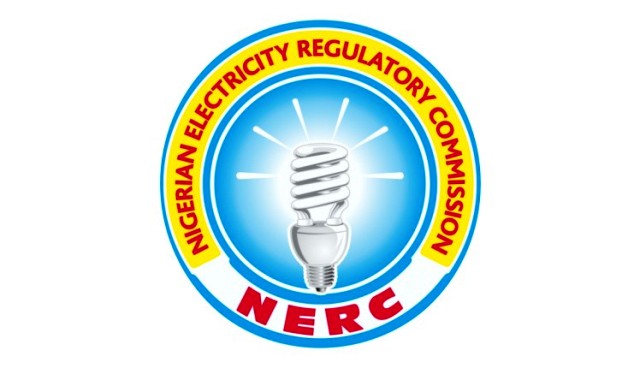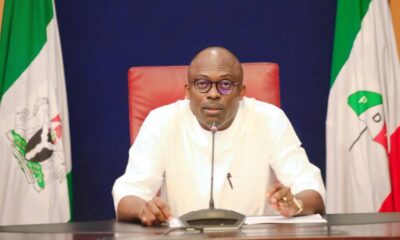Opinion
Commonsense And Nigerian Politicians
Several authors had defined commonsense as a basic
ability to perceive, understand and judge things correctly, others conclude by saying commonsense has a bit of “native intelligence” as an ingredient.
Apart from the application of commonsense in our governance, a corrupt-free government can lead us to economic prosperity where quality health care, good roads, employment and human capacity development will be given to the public as a dividend of democracy.
However, the word common sense is not new to many Nigerians especially since it was made popular by Thomas Paine, in his book of the same title.
However, Ben Murray Bruce a former Director General of the Nigerian Television Authority (NTA) and now a senator representing Bayelsa East senatorial District in the Senate, has popularized the lexicon “Common Sense” in the Nigerian Political history through the broadcast media, advising government on how to use common sense and cut cost in these hard times.
On his radio and television series, Ben Murray-Bruce has continued to agitate on how common sense by government officials can conquer some of our economic woes.
Most of the vexed issues highlighted by this media icon include illegal oil bunkering, pipeline vandalism, environmental degradation in the Niger Delta, the consumption of fuel without production and the large number of cars in the convoy of our elected officials while the masses are languishing in abject poverty.
Ben Murray-Bruce has vehemently condemned volume of cars in the convoy of our president, Vice President, Senate President, his deputy, Speaker House of Representative, Governors and Deputy Governor long before now. He positioned that those 20 or 15 bullet – proof cars, if cut down can address some of the challenges facing the common man.
Investigations reveal that there are bullet proof cars on some governor’s convoy, the least worth some N70 million naira each. It is therefore pertinent to note that common sense should rule in the mind of our elected officials who they should know that they no longer need this extravagant speeding due to the current economic crunch.
This campaign of wastage can be juxtaposed with the one done some years ago by Chief Obafemi Awolowo where he suggested to the government then to stop the buying of coffee and newspapers for his employee as this was tantamount to economic wastage. One of such common sense slogan is that our cost of governance has led to the embarrassing infrastructural decay in our education, roads hospitals and the collapse of the moral structure of the family system.
The current $150 million in American Banks was not kept by ghosts. They were kept by our politicians. Consequently, the recent investigation by security agent shows that some highly placed personalities are fully responsible for the quantum of oil stolen from the pipeline on a daily basis. Furthermore, can we rightly say those who are perpetrating all these atrocities against our country, Nigeria have lost their common sense or their conscience?
It is true to say that from available data, the economic paralysis ravaging this country today is as a result of laxities and the parasitic nature of government officials to run and milk the country dry. Obviously, it was the publication of common sense in America that challenged the British authority and royal monarchy where it was used to openly request for independence from Great Britain. This common sense subsequently propelled the Americans to a high sense of native intelligence and fearlessness.
Apparently, common sense is not actually common to everybody, this is because those who occupy this government positions lack the capacity to flee from the temptation of plunging the country into economic disaster, but they have the common sense to become rich over night.
The common sense theory forbid one to steal billions of naira and stock in both local and foreign bank while Nigerians starve to death. Also, Karl Albrenght, calls common sense “practical intelligence”. Nigerians need to wake up and challenge the most plaguing issues like terror in our system. Nigeria as an under developing nation need not employ flamboyance in this our nascent democracy.
President Pierre Nkurunziza of Burundi should have used common sense to avert the bloodbath of unconstitutional third term in his country which is generating a lot of criticism. Notwithstanding, we can borrow a leaf from the slain Burkinabe leader, Captain Thomas Isidore Noel Sankara who rejected his cozy air conditioned car and office in the protest that majority of his people still languished in abject poverty.
The left wing charismatic leader shunned ostentatious lifestyle and wastages, eager to bring economic development to all. Thomas Sankara stood on the side of the masses and proffered solutions to extinguish chronic poverty from Burkina Faso.
Our Nigerian Political class still bask in the euphoria of primitive accumulation without putting the citizens into cognizance.
As it is, Nigerians should manage the economic resources of the country creditably. In the crusade against corruption, all facets of government must be involved critically. According to Governor Adam Oshiomhole of Edo State, the stumbling block to Nigeria’s growth has been corruption and we must all fight it together. The Nigerian politicians should know that it makes common sense not to steal six billion dollars and put in an American Bank where other millions of Nigerians are dying of hunger.
Dukor writes from Port Harcourt.
Pius Dukor
Opinion
Betrayal: Vice Of Indelible Scar
The line that separates betrayal and corruption is very thin. Betrayal and corruption are two sides of the same coin. Like the snail and its shell they are almost inseparable. They go hand-in-globe. Betrayal and corruption are instinctive in humans and they are birthed by people with inordinate ambition – people without principles, without regard for ethical standards and values. Looking back to the days of Jesus Christ, one of his high profile disciples-the treasurer, was a betrayer. Judas Iscariot betrayed Jesus Christ for just 30 pieces of silver. One of the characteristics of betrayers is greed.
So, when on resumption from his imposed suspension, the Rivers State Governor, Sir Siminilayi Fubara threatened to bring permanent secretaries who were found complicit in “defrauding” the State during the days of Locust and Caterpillar regime, he did not only decry a loot of the Treasury but the emotional trauma of betrayal perpetrated by those who swore to uphold the ethics of the civil service. Governor Siminilayi Fubara had least expected that those who feigned loyalty to his administration would soon become co-travellers with an alien administration whose activities were repugnant to the “Rivers First” mantra of his administration. The saying that if you want to prove the genuineness of a person’s love and loyalty feign death, finds consummate expression in the Governor Fubara and some of the key members of the State engine room
Some of those who professed love for Governor Siminilayi Fubara and Rivers State could not resist the lure and enticement of office in the dark days of Rivers State, like Judas Iscariot. Rather, they chose to identify with the locusts and the caterpillars for their selfish interest. Julius Caesar did not die from the stab of Brutus but by his emotional attachment to him, hence he exclaimed in utter disappointment, “Even you Brutus”. The wound of betrayal never heals and the scar is indelible. Unfortunately, today, because of gross moral turpitude and declension in ethical standards and values, betrayal and corruption are celebrated and rewarded. Corruption, a bane of civil/public service is sublime in betrayal. The quest to get more at the expense of the people is the root of betrayal and sabotage.
This explains why Nigeria at 65 is the World’s capital of poverty.
Nigeria is not a poor country, yet, millions are living in hunger, abject poverty and avoidable misery. What an irony. Nigeria, one of Africa’s largest economies and most populous nation is naturally endowed with 44 mineral resources, found in 500 geographical locations in commercial quantity across the country. According to Nigeria’s former Minister for Mines and Steel Development, Olamiekan Adegbite, the mineral resources include: baryte, kaolin, gymsium, feldspar, limestone, coal, bitumen, lignite, uranium, gold, cassiterite, columbite, iron ore, lead, zinc, copper, granite, laterite, sapphire, tourmaline, emerald, topaz, amethyst, gamer, etc. Nigeria has a vast uncultivated arable land even as its geographical area is approximately 923, 769 sq km (356,669 sq ml).
“This clearly demonstrates the wide mineral spectrum we are endowed with, which offers limitless opportunities along the value-chain, for job creation, revenue growth. Nigeria provides one of the highest rates of return because its minerals are closer to the suffer”, Adegbite said. Therefore, poverty in Nigeria is not the consequences of lack of resources and manpower but inequality, misappropriation, outright embezzlement, barefaced corruption that is systemic and normative in leaders and public institutions. According to the World Poverty Clock 2023, Nigeria has the awful distinction of being the world capital of poverty with about 84 million people living in extreme poverty today.
The National Bureau of Statistics (NBS) data also revealed that a total of 133 million people in Nigeria are classed as multi-dimensionally poor. Unemployment is a major challenge in the country. About 33 percent of the labour force are unable to find a job at the prevailing wage rate. About 63 percent of the population are poor because of lack of access to health, education, employment, and security. Nigeria Economic Summit Group (NESG) speculated that unemployment rate will increase to 37 percent in 2023. The implications, therefore, is increase in unemployment will translate to increase in the poverty rate. The World Bank, a Washington-based and a multi-lateral development institution, in its macro-poverty outlook for Nigeria for April 2023 projected that 13 million Nigerians will fall below the National Poverty line by 2025.
It further stated that the removal of subsidy on petroleum products without palliatives will result to 101 million people being poor in Nigeria. Statistics also show that “in 2023 nearly 12 percent of the world population of extreme poverty lived in Nigeria, considering poverty threshold at 1.90 US dollars a day”.Taking a cursory look at the Nigerian Development Update (NDU), the World Bank said “four million Nigerians were pushed into poverty between January and June 2023 and 7.1 million more will join if the removal of subsidy is not adequately managed.” These startling revelations paint a grim and bleak future for the social-economic life of the people.The alarming poverty in the country is a conspiracy of several factors, including corruption. In January, 2023 the global anti-corruption watchdog, Transparency International, in its annual corruption prospect index which ranks the perceived level of public sector corruption across 180 countries in the world says Nigeria ranked 150 among 180 in the index. Conversely, Nigeria is the 30th most corrupt nation in the ranking. It is also the capital of unemployment in the world.
Truth be told: a Government that is corruption-ridden lacks the capacity to build a vibrant economy that will provide employment for the teeming unemployed population. So crime and criminality become inevitable. No wonder, the incessant cases of violent crimes and delinquency among young people. Corruption seems to be the second nature of Nigeria as a nation . At the root of Nigerians’ poverty is the corruption cankerworm.How the nation got to this sordid economic and social precipice is the accumulation of years of corrupt practices with impunity by successive administrations. But the hardship Nigerians are experiencing gathered momentum between 2015 and 2023 and reached the climax few days after President Bola Ahmed Tinubu, who assumed power as president of Nigeria, removed the controversial petroleum subsidy. Since then, there is astronomical increase in transport fares, and prices of commodities. Living standard of most Nigerians is abysmally low, essential commodities are out of reach of the poor masses who barely eat once a day.
The Dollar to Naira exchange rate ratio at one dollar to N1,000, is the most economy-unfriendly in the annals of the history of Nigeria. The prohibitive prices of petroleum products with the attendant multi-dimensional challenges following the removal of the subsidy, has posed a nightmare better to be imagined than experienced. Inflation, has been on the increase, negatively affecting the purchasing power of low income Nigerians. Contributing to the poverty scourge is the low private investment due to.unfriendly business environment and lack of power supply, as well as low social development outcomes resulting in low productivity. The developed economies of the world are private sector-driven. So the inadequate involvement of the private sector in Nigeria’s economy, is a leading cause of unemployment which inevitably translates to poverty.
Igbiki Benibo
Opinion
Dangers Of Unchecked Growth, Ambition
In today’s fast-paced, hyper-competitive world, the pursuit of success and growth has become an all-consuming force. Individuals, organisations, and nations alike, are locked in a perpetual struggle to achieve more, earn more, and surpass their rivals. Yet, beneath this relentless drive for progress lies a silent danger—the risk of self-destruction. This perilous pattern, which I call the self-destruct trajectory, describes the path taken when ambition and growth are pursued without restraint, awareness, or moral balance. The self-destruct trajectory is fueled by an insatiable hunger for more—a mindset that glorifies endless expansion while disregarding the boundaries of ethics, sustainability, and human well-being. At first glance, it may appear to promise prosperity and achievement. After all, ambition has long been celebrated as a virtue. But when growth becomes the only goal, it mutates into obsession.
Individuals burn out, organisations lose their soul, and societies begin to fracture under the weight of their own excesses. The consequences are everywhere. People pushed beyond their limits face anxiety, exhaustion, and disconnection. Companies sacrifice employee welfare and social responsibility on the altar of profit. The entire ecosystems suffer as forests are cleared, oceans polluted, and air poisoned in the name of economic progress. The collapse of financial systems, widening income inequality, and global environmental crises are all symptoms of this same relentless, self-consuming pursuit. To understand this dynamic, one can turn to literature—and to Charles Dickens’ Oliver Twist. In one of the novel’s most haunting scenes, young Oliver, starving in the workhouse, dares to utter the words: “Please, sir, I want some more.” This simple plea encapsulates the essence of human desire—the urge for more. But it also mirrors the perilous craving that drives the self-destruct trajectory. Like Oliver, society keeps asking for “more”—more wealth, more power, more success—without considering the consequences of endless wanting.
The workhouse itself symbolises the system of constraints and boundaries that ambition often seeks to defy. Oliver’s courage to ask for more represents the daring spirit of human aspiration—but it also exposes the risk of defying limits without reflection. Mr. Bumble, the cruel overseer, obsessed with authority and control, embodies the darker forces that sustain this destructive cycle: greed, pride, and the illusion of dominance. Through this lens, Dickens’ tale becomes a timeless metaphor for the modern condition—a warning about what happens when ambition blinds compassion and growth eclipses humanity. Avoiding the self-destruct trajectory requires a radical rethinking about success. True progress should not be measured solely by accumulation, but by balance—by how growth serves people, planet, and purpose.
This calls for a more holistic approach to achievement, one that values sustainability, empathy, and integrity alongside innovation and expansion
Individuals must learn to pace their pursuit of goals, embracing rest, reflection, and meaningful relationships as part of a full life. The discipline of “enough”—knowing when to stop striving and start appreciating—can restore both mental well-being and moral clarity. Organisations, on their part, must reimagine what it means to succeed: prioritising employee welfare, practising environmental stewardship, and embedding social responsibility in the core of their mission. Governments and policymakers also play a vital role. They can champion sustainable development through laws and incentives that reward ethical practices and environmental responsibility. By investing in education, renewable energy, and equitable economic systems, they help ensure that ambition is channeled toward collective benefit rather than collective ruin.
Corporate Social Responsibility (CSR) provides a tangible pathway for this transformation. When businesses take ownership of their social and environmental impact—reducing carbon footprints, supporting local communities, and promoting fair labour—they not only strengthen society but also secure their own long-term stability. Sustainable profit is, after all, the only kind that endures. Ultimately, avoiding the self-destruct trajectory is not about rejecting ambition—it is about redefining it. Ambition must evolve from a self-centred hunger for more into a shared pursuit of the better. We must shift from growth at all costs to growth with conscience. The future will belong not to those who expand endlessly, but to those who expand wisely. By embracing restraint, compassion, and sustainability, we can break free from the cycle of self-destruction and create a new narrative—one where success uplifts rather than consumes, and where progress builds rather than burns.
In the end, the question is not whether we can grow, but whether we can grow without losing ourselves. The choice is ours: to continue along the self-destruct trajectory, or to chart a more balanced, humane, and enduring path toward greatness.
Sylvia ThankGod-Amadi
Opinion
Gridlock at the Gates

-

 News4 days ago
News4 days agoNERC Approves N28bn For Procurement Of Meters For Band A Customers
-

 News4 days ago
News4 days agoFubara Reassures Rivers People Of Completion Of PH Ring Road Project
-

 Rivers4 days ago
Rivers4 days agoWorld Food Day: Farmers Urge Collaboration For Improved Productivity
-

 Nation4 days ago
Nation4 days agoMOSIEND Hails Benibo Anabraba Appointment As Rivers SSG
-

 Rivers4 days ago
Rivers4 days agoIAUE Governing Council Chair Assures On Mandate Delivery
-

 Featured4 days ago
Featured4 days agoFubara Tasks New SSG On Honour, Service, Protection Of Rivers Interest
-
Opinion4 days ago
Dangers Of Unchecked Growth, Ambition
-

 Editorial4 days ago
Editorial4 days agoMaking Rivers’ Seaports Work

